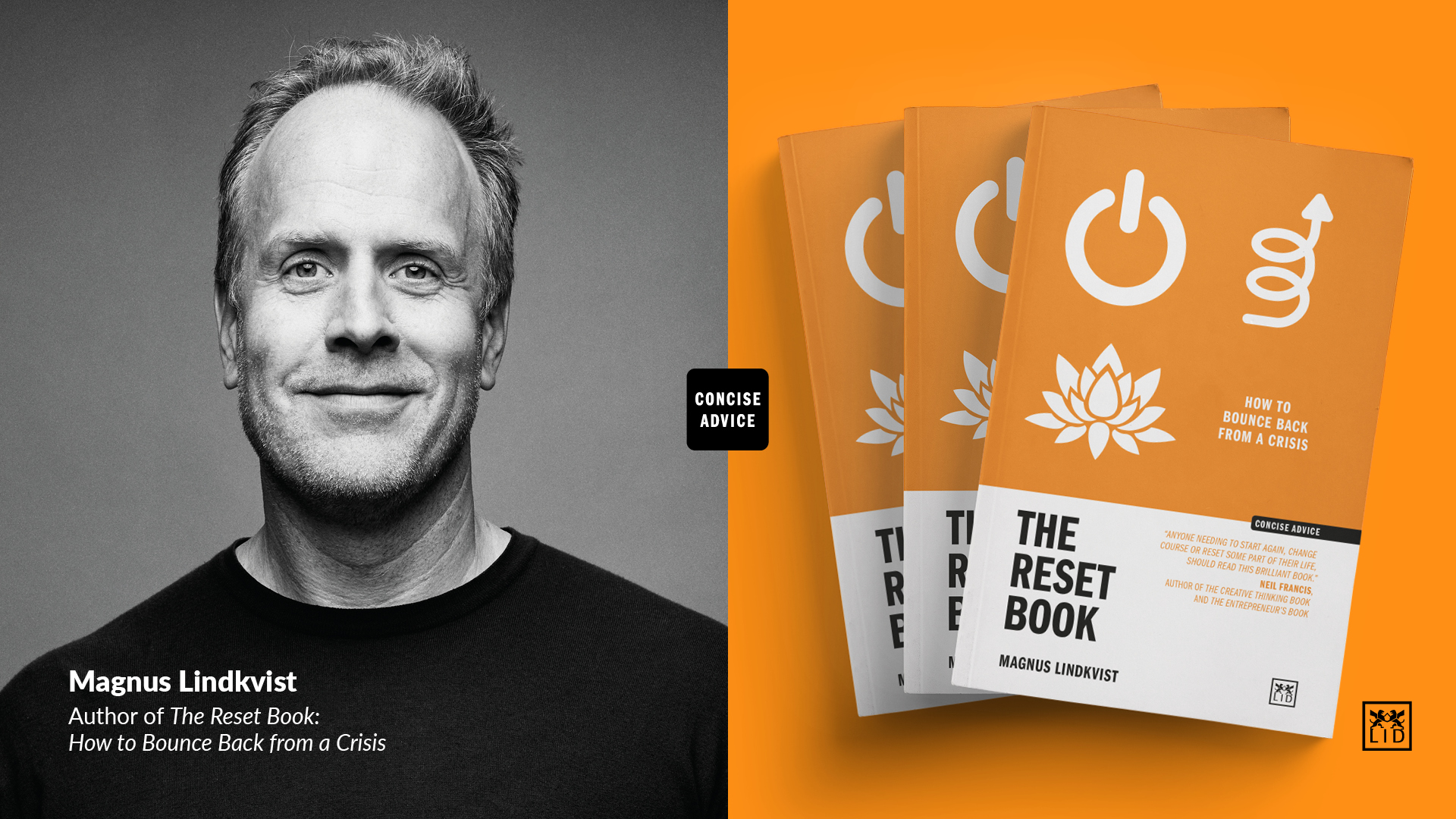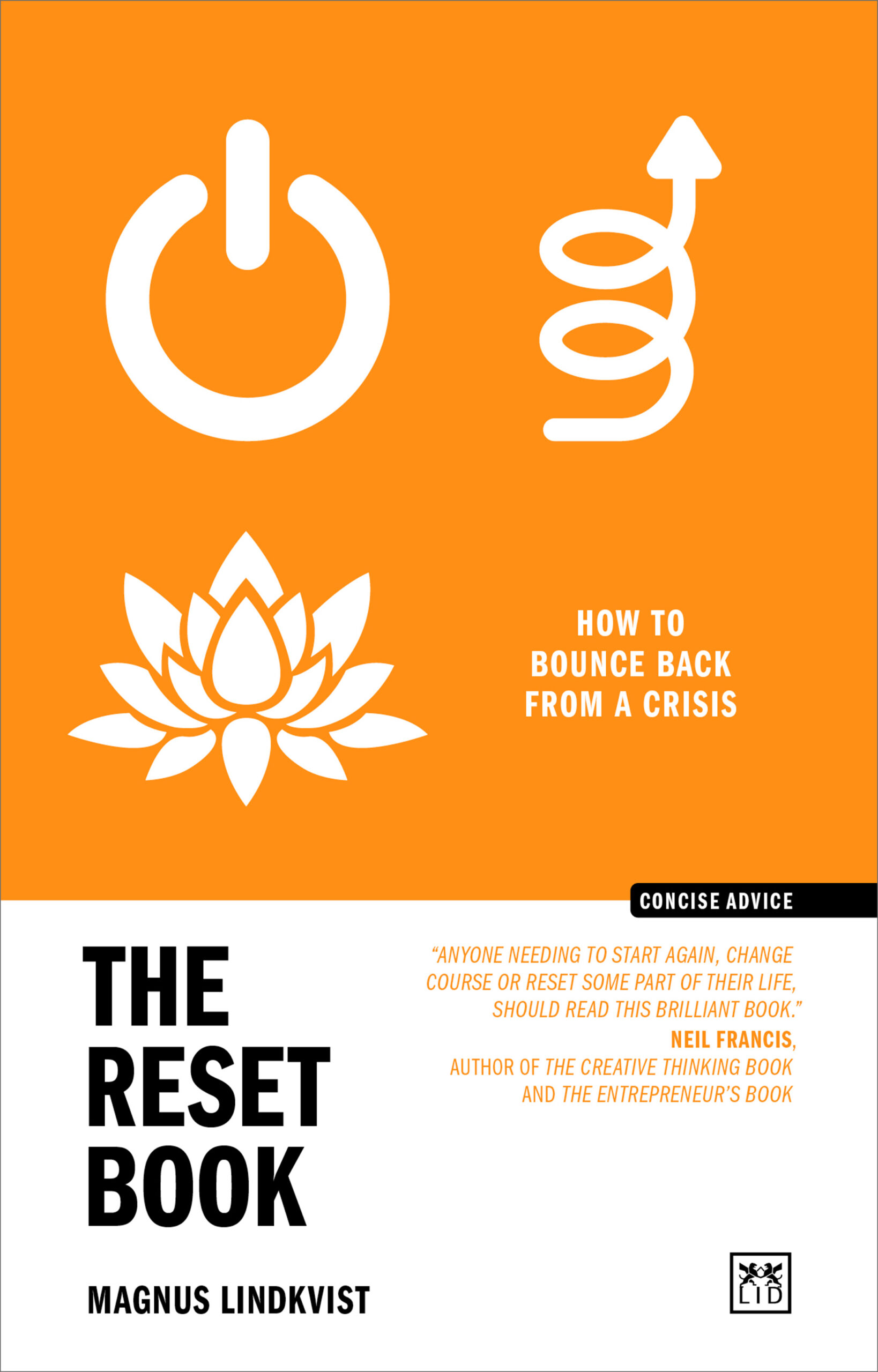|
The Groundhog Way? with Magnus Lindkvist
The Groundhog Way? with Magnus Lindkvist

By Guest Contributor Magnus Lindkvist
Author of The Reset Book Book, Magnus Lindkvist, shares some of the stages we go through when faced with a crisis and how to emerge from it.
When misanthropic weatherman Phil Connors – as played by Bill Murray in the masterpiece Groundhog Day from 1993 – finds himself stuck in a perpetual time loop in freezing cold rural Pennsylvania, he does what we all would do in such an unlikely scenario; he vehemently denies this new, strange reality.
When you and I witnessed the tragedies of September 11 or an eerily empty Piccadilly Circus in March 2020, we often likened it to a movie, as if the events unfolding before us were not real.
Denial is the first stage of a crisis.
Or, to put it another way – it’s only a crisis if we deny it.
This is why Nokia engineers laughed at the iPhone, and Ryanair was treated as an ugly duckling by British Airways in the early 2000s. The things we deny tend to surprise us on some Tuesday morning and then change everything completely overnight.
We live in crisis-rich times, from pandemics and wars to new strange media climates and alien ai technology. It is called everything from poly to permacrisis, and missed the point completely; the problem is not that new things are happening but that we were in denial about them for so long.
Once Phil Connors accepts his cruel fate, he gets angry, depressed, and hedonic as if the future doesn’t matter. This, too, reflects the human tendency to get outraged when things are no longer as they once were. The first sign of ageing is usually that you complain about what garbage new things like TikTok are compared with the fine offerings of yesteryear on Facebook and YouTube. You also lament the paradise lost when your spouse leaves you, or your favorite restaurant closes down because of post-pandemic inflation pressures and labor shortages.
The deeper the denial (”I know he/she will never leave me”), the more intense the grief and outrage will be (” How could he/she ever be so stupid as to do this to me?”).
In other words, crises begin by wasting time.
It might be a necessary waste, therapeutically speaking, but behind the veil of sorrow and anger lies a brand-new day, a whole new world.
Which is what Phil Connors discovers. Instead of wasting days pigging out on cakes and casual sex, he builds cumulative skills and discovers how much more rewarding altruism is.
In the wake of a crisis, once emotional trauma subsides, you and I make new discoveries. Friends and lovers we never knew existed. Strengths we never knew we had. We can call it Year Zero when all the old rules have been cancelled, and we are free to roam around this new planet, like Jake Sulley Pandora in Avatar, to mix movie metaphors and confuse you more (It’s Year Zero, after all!)
Finally, Phil Connors wakes up to a new day. A changed man. Now with deep-rooted love inside him. Crises come, and crises go. This, too, shall pass. But do not waste it. It is a tool and a lens to help you discover new things and see things anew.
It might not be a better you just yet, just a different you.
And you may still miss things we lost in the fire.
But life was never intended to be a clearly designed path between A and Z but an incoherent adventure with hills and valleys.
The people who can grasp and accept this tend to find happiness.
Not the short-term dopamine kick you get from shopping, sex or a snootful of cocaine.
But the kind of long-term inner calm that we call wisdom.
Good luck finding your Groundhog Way!
ABOUT THE AUTHOR
 Magnus Lindkvist is an internationally renowned futurist and consultant. He is the author of The Future Book, When the Future Begins and Minifesto (both published by LID). He is based in Sweden.
Magnus Lindkvist is an internationally renowned futurist and consultant. He is the author of The Future Book, When the Future Begins and Minifesto (both published by LID). He is based in Sweden.
Suggested Reading
 We cannot avoid crises in our lives, businesses and societies. But we can learn how to reset and bounce back from a crisis. And not the same place, but to something bigger, better or, at least, different. The clues about how this can be accomplished lay hidden in case studies, psychological research, corporate storytelling, personal anecdotes and historical documents. Magnus Lindkvist is the interdisciplinary detective in search of these clues, and in doing that, he provides insights, tools and solace for any person or organization seeking to reset and bounce back.
We cannot avoid crises in our lives, businesses and societies. But we can learn how to reset and bounce back from a crisis. And not the same place, but to something bigger, better or, at least, different. The clues about how this can be accomplished lay hidden in case studies, psychological research, corporate storytelling, personal anecdotes and historical documents. Magnus Lindkvist is the interdisciplinary detective in search of these clues, and in doing that, he provides insights, tools and solace for any person or organization seeking to reset and bounce back.
